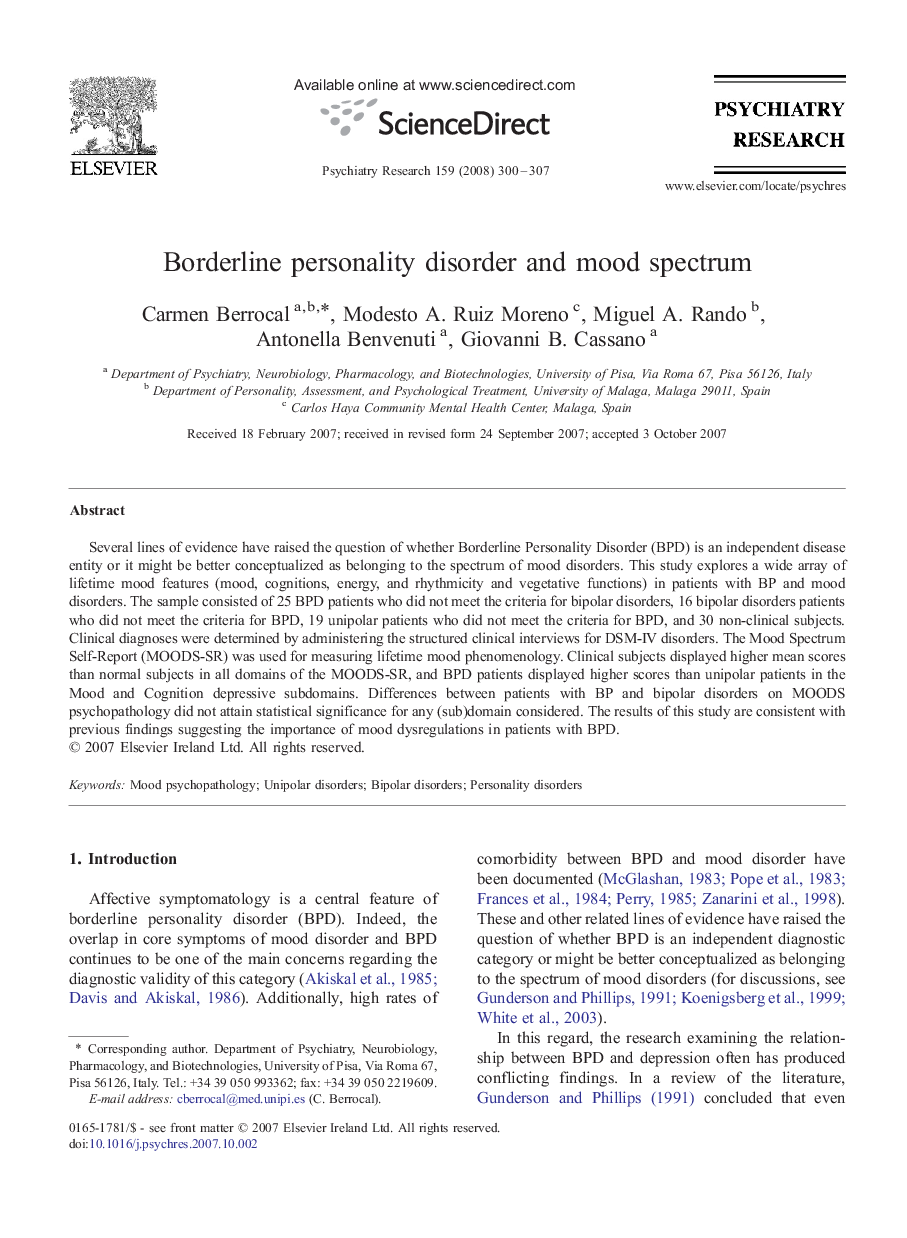| Article ID | Journal | Published Year | Pages | File Type |
|---|---|---|---|---|
| 334000 | Psychiatry Research | 2008 | 8 Pages |
Several lines of evidence have raised the question of whether Borderline Personality Disorder (BPD) is an independent disease entity or it might be better conceptualized as belonging to the spectrum of mood disorders. This study explores a wide array of lifetime mood features (mood, cognitions, energy, and rhythmicity and vegetative functions) in patients with BP and mood disorders. The sample consisted of 25 BPD patients who did not meet the criteria for bipolar disorders, 16 bipolar disorders patients who did not meet the criteria for BPD, 19 unipolar patients who did not meet the criteria for BPD, and 30 non-clinical subjects. Clinical diagnoses were determined by administering the structured clinical interviews for DSM-IV disorders. The Mood Spectrum Self-Report (MOODS-SR) was used for measuring lifetime mood phenomenology. Clinical subjects displayed higher mean scores than normal subjects in all domains of the MOODS-SR, and BPD patients displayed higher scores than unipolar patients in the Mood and Cognition depressive subdomains. Differences between patients with BP and bipolar disorders on MOODS psychopathology did not attain statistical significance for any (sub)domain considered. The results of this study are consistent with previous findings suggesting the importance of mood dysregulations in patients with BPD.
